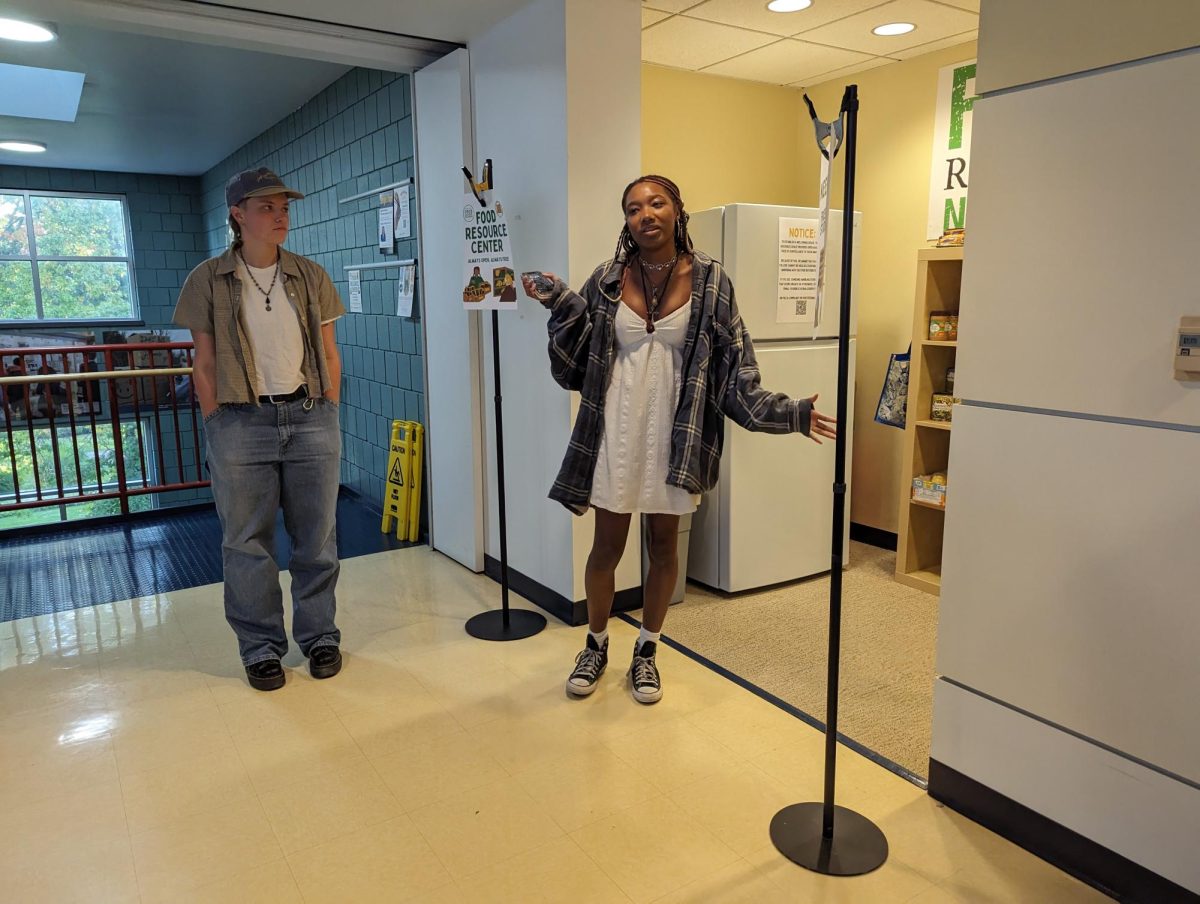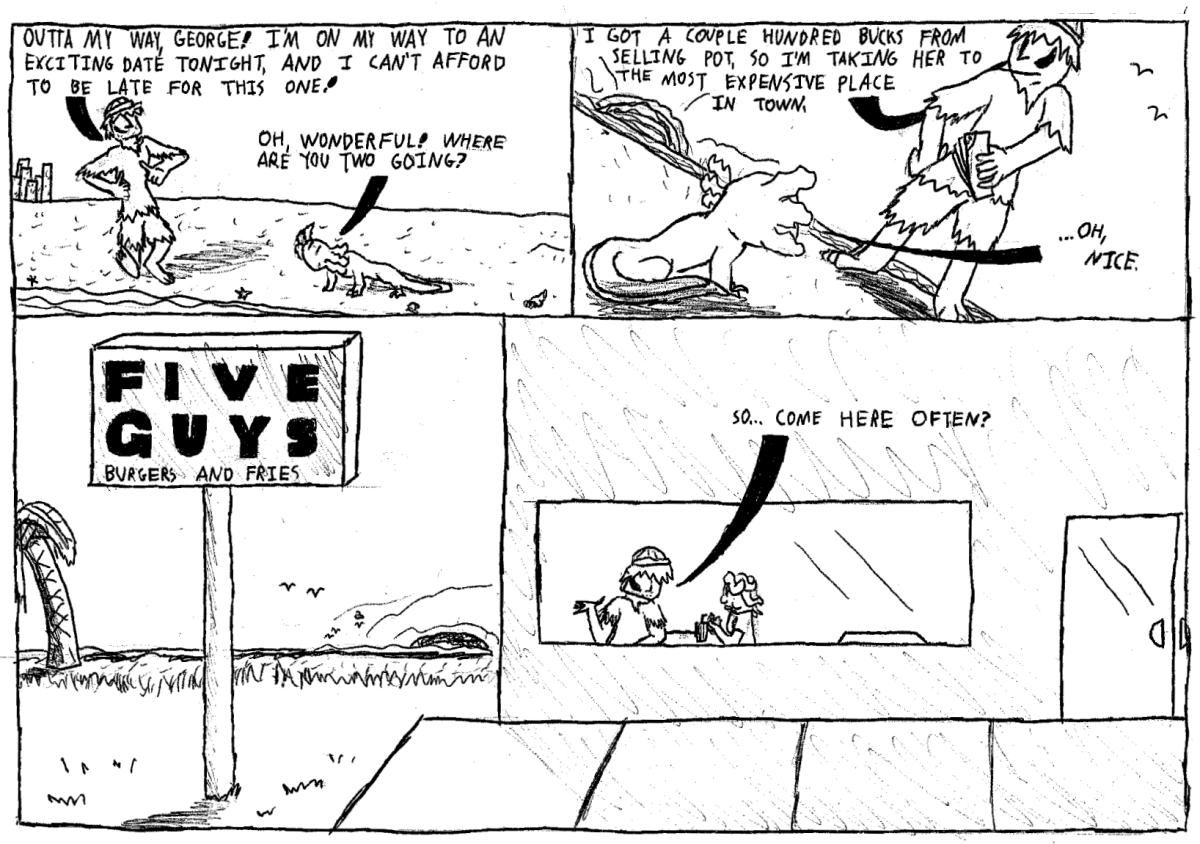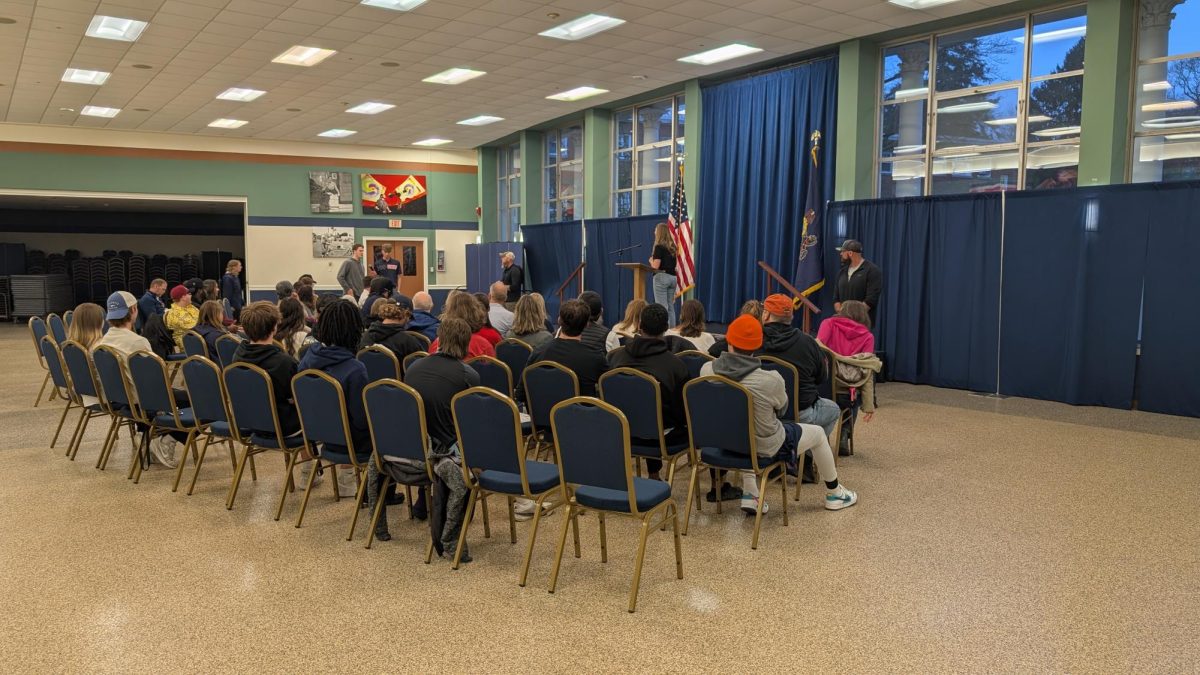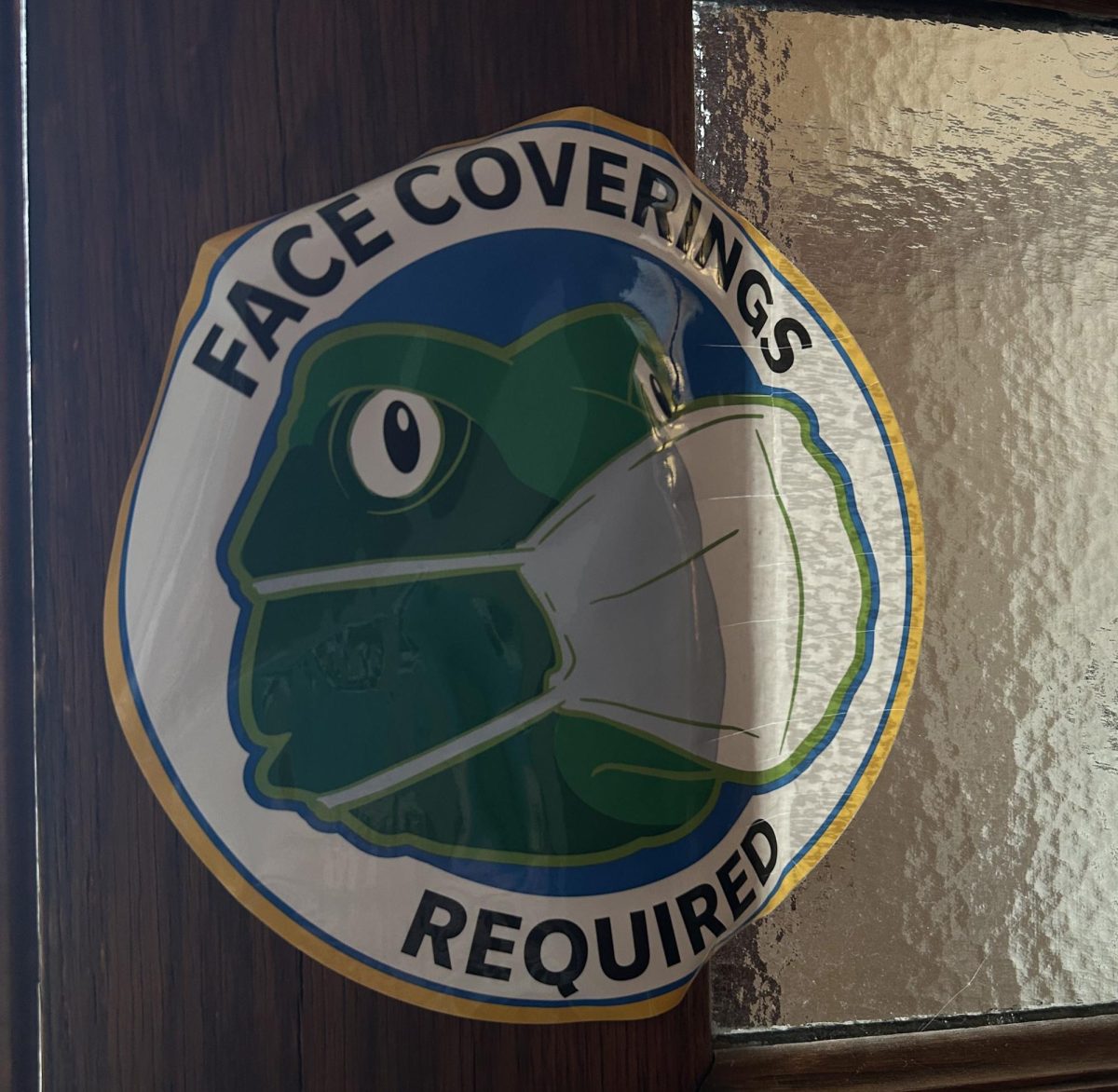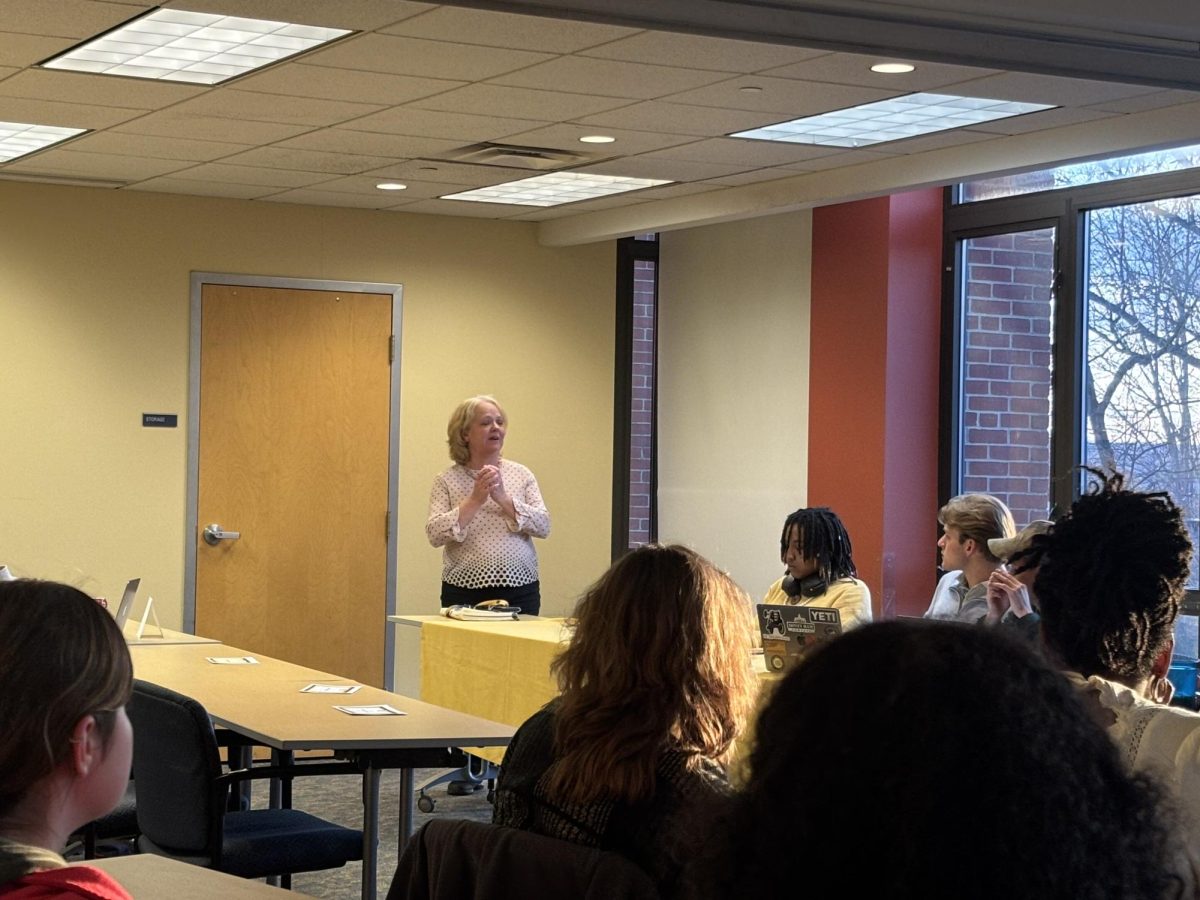Allegheny’s chapter of the Food Recovery Network unveiled their new Food Recovery Center on Sept. 22, 2023. The center will serve as a 24/7 resource where all students will have access to refrigerated produce, dry goods and other food staples.
President of Allegheny’s FRN chapter London Dejarnette, ’24, explained that the center is intended for all students who have a need for it.
“If the campus center is open, it is open,” Dejarnette said. “Take whatever you need.”
FRN is an Allegheny Student Government-recognized club, which means that it receives funding from both ASG and the national FRN organization. The new center, located on the third floor of the campus center outside of rooms CC 301/302, is a continuation and expansion of ASG’s dry goods pantry from last year.
“By using both the funding from Food Recovery Network’s national chapter as well as ASG we’re able to get things like a community fridge and an aquaponics tower,” Dejarnette said.
The club’s focus is twofold: in addition to combating food insecurity on campus, FRN is also focused on recovering food that would otherwise go to waste. Closing this loop, Dejarnette explained, is the ultimate goal of FRN.
“I can’t even begin to explain to you the pure mass of food that is being thrown out every day,” Dejarnette said. “And it has the potential to serve a social impact. So it just makes sense to be reconnecting those resources to people that need it.”
During their general meeting prior to the unveiling, FRN board members met with students in CC 206 to discuss what food insecurity is, what it means on Allegheny’s campus and what the new center is designed to do.
Vice President of FRN Amani Green, ’25, explained that the food recovered from Brooks is not only safe, but would otherwise go to waste if FRN did not step in to recover it.
“100% of the food that we recover is food that isn’t even going to be served at the end of the night to students,” Green said. “So the food that’s on the line we don’t recover, because it isn’t food safe, given that a lot of people are handling the food.”
All members of FRN are trained in food safety and all food recovered goes through a process to ensure its safety. This process includes laying the recovered food onto sheets and then cooling, repackaging, freezing and distributing the food to the center as well as to community partners.
Since November 2022, FRN has recovered 1,178 pounds of food, which according to their calculations is equal to 981 meals or 537,168 gallons of water saved in the production and distribution process.
Though the board members are passionate about their cause, Dejarnette elaborated that students assisting with the recovery process struggled with food insecurity before.
“I think it’s pretty telling that the students that are doing the bulk of this work are low-income, food insecure students themselves,” Dejarnette said.
As board members highlighted, FRN is entirely student-run, from it’s recovery process to connections with local partners.
“It’s important to note that Allegheny is really insistent on not being responsible for … the center,” Dejarnette said. “So it’s student-run, we don’t have any sort of institutional input right now, as far as funding or support.”
FRN’s Food Resource Coordinator Kaylan Parker, ’25, was tasked with setting up the new space and believes that food insecurity is a more pervasive issue than many realize.
“It’s very holistic in its approach,” Parker said. “I think that what some of my other board members said was so true, which is that it’s a systemic issue of — not just not having the resources — but not allowing people who don’t have resources access to food that will support them.”
To eliminate some of the stigma around needing extra food, meals recovered for the center will be redistributed in green boxes.
“Although we would like to think that students would not be judgemental of that on this campus, there’s still a ton of stigma about being low-income or food insecure,” Dejarnette said.
Parker also emphasized that the center will hopefully help students gain some confidence when it comes to not only selecting food, but preparing it.
“I think another goal is to create a sense of independence in students, of being able to pick what they want to eat, when they want to eat, being able to make their own meals, maybe being able to learn how to cook things that maybe they haven’t worked with before,” Parker said.
In the near future, the center will supply recipe cards whose ingredients will be supplied in the center or can be supplemented in Brooks. The selection of recipes will also include halal and vegetarian options.
While students are still welcome to donate non-perishable goods as they were last year, Dejarnette explained that the responsibility of keeping the space fully stocked should not fall on students.
“If students have the capacity to donate and they can, they definitely should,” Dejarnette said. “But the last thing we want is for students to be doing more when it comes to securing food access on this campus.”
Categories:
Food Resource Center opens with fridge, food staples
Food Recovery Network President London Dejarnette, ’24, (left) and Food Resource Coordinator Kaylan Parker, ’25, unveil the new Food Resource Center on the third floor of the campus center. The FRC houses a fridge, microwave and dry goods pantry and is open whenever the campus center is.
Story continues below advertisement
0
More to Discover
About the Contributor

Sam Heilmann, Opinion Editor
Sam Heilmann is a sophomore from Johnstown, PA. She is majoring in Communications. This is her second year on the Campus staff, and her first as Opinion Editor. When she isn’t writing for The Campus, she enjoys painting, listening to music and spending time with her friends.




